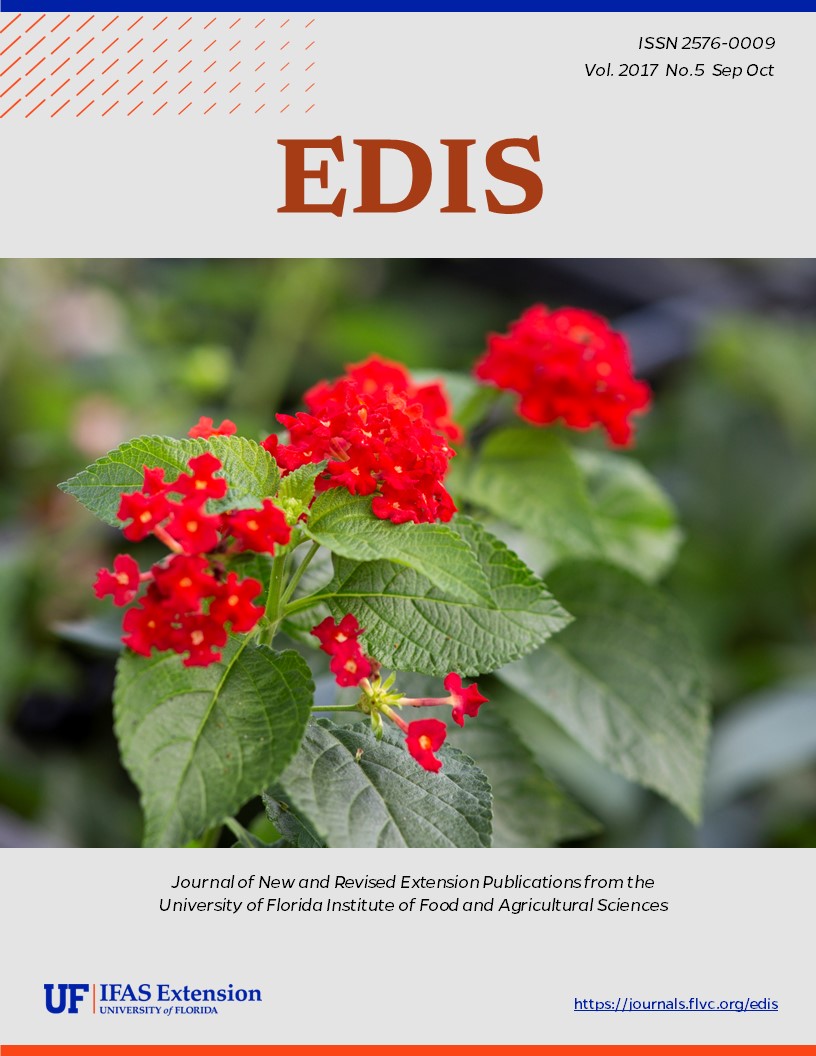Abstract
In order to achieve optimal yields in agronomic crops, it is imperative to maintain plants under minimal water stress. While responses to water deficits vary among different crops, the quantity of water utilized closely correlates with both vegetative growth and grain yield. Effective irrigation management aims to reduce water loss through runoff, deep percolation, and evaporation, while maximizing the portion of irrigation water allocated to crop transpiration. This document provides overarching guidelines for the efficient irrigation management of various agronomic crops in Florida.
References
Harrison, Dalton S., Memorandum on "Water use (ET) Values for Crops and NIR (Net Irrigation Requirement) Values at 50%, 80%, and 90% Rainfall Probabilities." February 1, 1983.
Florida Agriculture in the 80's Commodity Committee: Sugarcane Committee Report.
Snyder, George H. et al, Water Table Management: For Organic Soil Conservation and Crop Production in the Florida Everglades, Bulletin 801, Agricultural Experiment Station, IFAS, University of Florida, pp. 14-15.
Shih, S. F. and Gascho, G. J., Water Requirement for Sugarcane Production. Transactions of the ASAE, American Society of Agricultural Engineers, St. Joseph, Michigan, Vol. 23, No. 4, 1980, pp. 937. https://doi.org/10.1063/1.862938

This work is licensed under a Creative Commons Attribution-NonCommercial-NoDerivatives 4.0 International License.
Copyright (c) 2017 UF/IFAS

